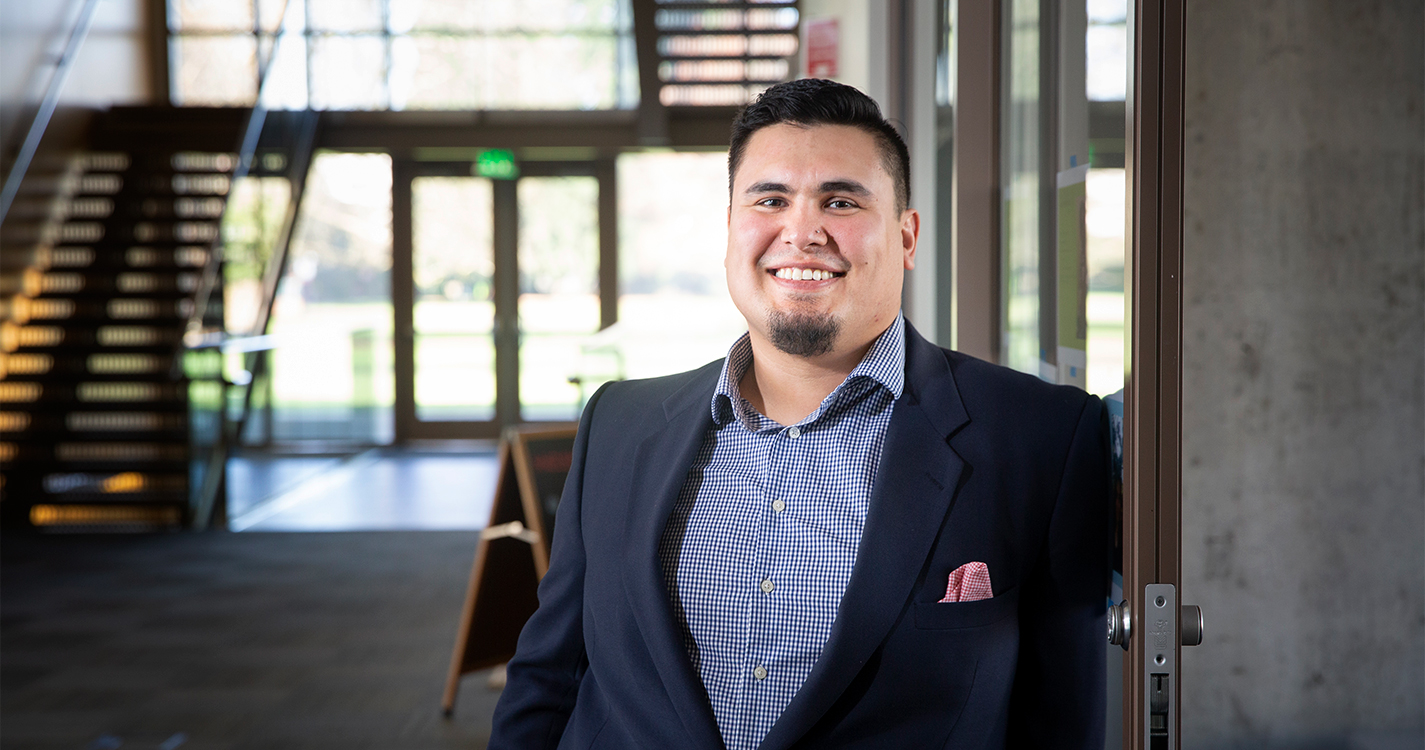On Will Lomer’s first day at Willamette University, he looked around.
“I was 30 and I was surrounded by 18-year-olds,” he said. “I wondered if I was making the right decision.”
For more than a decade, Lomer ’22 had found solid work in Alaska’s oil industry. But after dodging two rounds of global oil and gas market downturns that resulted in mass layoffs, he sought stability and flexibility — for himself and his growing family.
Several colleges across the country accepted Lomer, but he chose Willamette for its high academic standards. An economics major, Lomer plans on entering the BA/MBA program so he can graduate with a degree and MBA in five years.
To augment his MBA, he also plans on taking Chinese and computer science classes to be more appealing to West Coast companies like Amazon, Nike or Adidas and East Coast oil and gas companies.
“I’ll have a lot of flexibility in what I can offer to the market,” he said.
At a crossroads
Like many adults who consider going back to school, Lomer had reached a turning point.
His career choices were limited. He and his wife had already settled in Rickreall, Oregon, so she could get a teaching degree at Western Oregon University in Monmouth. They also just welcomed their first child.
He didn't want to continue his schedule of traveling out of state two weeks at a time with children, and his skills as a downhole diagnostic technician (highly specialized work that involved manipulating fluid levels) didn't’t translate to other jobs.
“I had a little self-doubt. But I looked at the long-term benefits — with a degree, I have this flexibility to get another nice paying job that’s going to benefit my family,” he said. “And I know having educated parents is important for our children’s future.”
In October 2017, he applied to 20 colleges and roughly the same number of scholarships. Filling out applications became nearly a part time job for him after work. In addition, he called admission officers at universities to explain his job history and why his high school transcripts weren't strong, which made a big difference in how receptive they were, he said.
Onward and upward
Once he started classes at Willamette, the first few weeks were a little awkward. He asked himself if he really had the knowledge he needed to belong there.
He couldn't shake the feeling, so he visited professors and explained his background. They understood he hadn't been in school for more than a decade and reassured him that all the tools he needed for success were right there, he said.
“That’s when that feeling began to fade,” he said. “I realized everyone else in the class was in the same position — we were all learning material for the first time.”
Returning to school was less intimidating than he thought. He was young enough to know pop culture and talk to current students, but old enough to relate to professors who had children and owned homes. He could connect with them on a level an 18-year-old could not, he said.
Yet juggling school, family, and work obligations hasn't been easy. Only into his second year at Willamette, he saw the birth of his second child. His day starts as early as 4:45 a.m. and ends at midnight to fit everything in: part-time work at Starbucks, classes, homework, being a father and husband.
So what makes this chaotic life worth it? The strength of a Willamette business degree, he said.
“Any professional in the area knows what a Willamette degree offers,” he said. “There’s an overwhelming sense that if you go to Willamette, you’ve done something right and you are on your way to greater things.”

